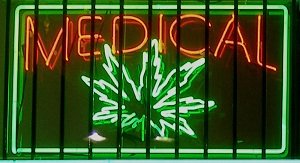 People’s attitude towards legalization of marijuana has faced a dramatic shift over the past 54 years. From just 12% of the US population in favor of making the drug legal in 1969, the percentage of supporters rose to 53% in 2013, while the opponents decreased almost twice in their numbers, from 84% to 44%. The issue remains fresh, as both sides have enough arguments to support their cause.
People’s attitude towards legalization of marijuana has faced a dramatic shift over the past 54 years. From just 12% of the US population in favor of making the drug legal in 1969, the percentage of supporters rose to 53% in 2013, while the opponents decreased almost twice in their numbers, from 84% to 44%. The issue remains fresh, as both sides have enough arguments to support their cause.
Among the supporters, the most popular reasons for legalization include health benefits, the belief that marijuana is relatively harmless as compared to other drugs (which include tobacco and alcohol), the possible economic benefits that regulation might bring, and also liberal views. As the medicinal benefits of marijuana are being explored by health researchers, and the other cited reasons can be questioned as well, there are still numbers of legalization opponents, who are mainly republicans, conservatives, people of Hispanic origin, and older population. They cite the substance’s antisocial nature, addictiveness, the need for its governmental control, and the fact that marijuana sometimes serves as a gateway drug. The latter means that individuals who “smoke pot” are likely to switch to other drugs in the future.
There are some arguments against legalization of marijuana which are expressed clearly and supported by the statistics. For example, many opponents believe that all medicinal benefits of marijuana are related not to the fact that people smoke it, but rather the plant’s active substances. In their opinion, it does not mean that smoking of marijuana has any health benefits. Moreover, legalization may lead to the situation in which big companies will take the industry under their control, just like it was in the case of tobacco and the cigarette manufacturers.
A large percentage of conservatives, women, and older people believe that the active substance in the weed, THC, causes significant brain damage, especially if consumed in large amounts. It leads to debilitation of the individual’s ability to focus and make decisions. Therefore, young people whose brains have not been fully formed yet should avoid marijuana consumption, which can be achieved by at least limiting its use nationwide. Their main concern is that marijuana is overly available to young people, especially in schools.
The anti-cannabis part of the population believes that regulation of the substance will cost the country too much. They compare the possible damage with the damage from alcohol use. They have estimated that the potential losses are 10 times more costly than the tax-based gains. Besides, legalization will call for additional costs on changing the existing state of things. For example, training of police officers and changing the legislation will cost a significant amount of money which could be otherwise spent on social programs. In addition, the opponents believe that its decriminalization will not lead to the positive changes in the society, as 99% of people who are sentenced in relation to marijuana cases are traffickers, not individual users.
While there are supporters of marijuana legalization globally who follow the current research results in the area of cannabis consumption and who state the benefits of weed and its positive impacts on health, marijuana opponents have their own stats at hand. They believe that legalization will not only fail to solve the current problem, but will create a number of others, such as increased costs, monopolization of the industry and high accessibility among kids.
References
- Meier et al., “Adolescent-onset Cannabis and Neuropsychological Health.” Proceedings of the National Academy of Sciences, August 27, 2012.
- Mehmedic, Zlatko, et al., “Potency Trends for THC and Other Cannabinoids in Confiscated Cannabis Preparations from 1993 to 2008.” Journal of Forensic Sciences, Vol. 55, No. 5.
- Mechoulam R, Peters M, Murillo-Rodriguez E, et al. Cannabidiol—Recent Advances. Chemistry and Biodiversity, 2007.
- Hézode C, Zafrani ES, Roudot-Thoraval F, et al. Daily Cannabis Use. Gastroenterology, 2008.
- Henquet C, Krabbendam L, Spauwen J, et al. Prospective Cohort Study of Cannabis Use, Predisposition for Psychosis and Psychotic Symptoms in Young People. British Medical Journal, 2005.
- Tarter, RE, Vanyukov M, Kirisci L, Reynolds M, Clark DB. Predictors of Marijuana Use in Adolescents Before and After Licit Drug Use: Examination of the Gateway Hypothesis. American Journal of Psychiatry, 2006.
- In Debate Over Legalizing Marijuana, Disagreement Over Drug’s Dangers, People Press, April 14, 2015.